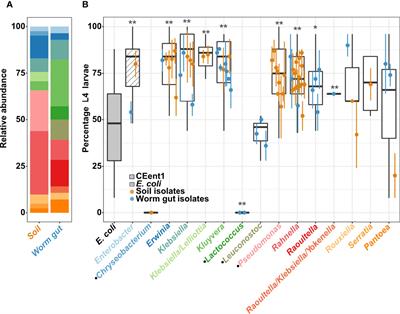EDITORIAL
Published on 26 Sep 2022
Editorial: C. elegans host-microbiome interactions: From medical to ecological and evolutionary model
doi 10.3389/fcimb.2022.1035545
- 1,661 views
- 2 citations
5,416
Total downloads
38k
Total views and downloads
You will be redirected to our submission process.
EDITORIAL
Published on 26 Sep 2022
ORIGINAL RESEARCH
Published on 15 Jun 2022

BRIEF RESEARCH REPORT
Published on 17 Feb 2022

BRIEF RESEARCH REPORT
Published on 14 Feb 2022

ORIGINAL RESEARCH
Published on 31 Jan 2022

BRIEF RESEARCH REPORT
Published on 17 Dec 2021

ORIGINAL RESEARCH
Published on 14 Oct 2021

BRIEF RESEARCH REPORT
Published on 07 Oct 2021

